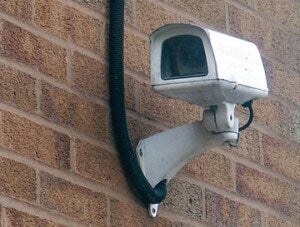London’s Surveillance Fails – Only 1 Crime Solved per 1000 Cameras

Share

Some people don't mind being watched. Apparently London criminals are among those. According to several major UK news outlets, an internal Metropolitan Police report was released last week that admitted less than 1 crime was solved per year for every 1000 CCTV cameras in London. This comes as a major blow to the UK police who spent £500 million between 1996 and 2006 installing 4 million cameras nationwide, with 1 million in London alone. Despite claims that each citizen might be seen on 300 cameras a day, perhaps half of all CCTV camera footage is unsuitable to convict criminals in court. The British public is crying foul, the police force is scrambling to access the problem, and everyone is watching to see what the world's most recorded country is going to do next.
Whether you like or not, digital observation is only going to get more prevalent in the future. We have faster, cheaper, and more plentiful recording devices everywhere and attached to everything. You're already recorded many times a day by private cameras, and that's only going to get more invasive when implants, facial recognition software, and 3D scanning get going. What's happening in London, both the wide spread public use of CCTV and the complications from it, is a precursor to what the rest of the world can expect.
The failure of Britain's massive surveillance system highlights a truth of public monitoring: more isn't always better. Cameras are not always at the correct angle or resolution to provide meaningful identification. And everyone seems to know that. There has been little evidence of CCTV serving as a deterrent to crime in London. A man was beaten in front of a pub in full view of a camera. His assailants were convicted based on eye witness testimony because the recording wasn't clear enough to identify them. In fact, besides parking lots, few locations seem to have lower crime rates thanks to the cameras dotted around the city.
Be Part of the Future
Sign up to receive top stories about groundbreaking technologies and visionary thinkers from SingularityHub.


Perhaps the biggest problem with the current British system is that it is passive. Few circuits are monitored by a living person, so crimes committed in front of cameras aren't noticed until long after they occur. Switching to an active system would greatly improve the efficacy of the observation. As we've mentioned before, there is a wide range of surveillance systems that can recognize actions and intents, including Europe's own Humabio. An active computer monitor would be able to alert police as a crime was taking place. In some cases, computers would even be able to detect individuals who's faces, gaits, or posture indicated hostile intent. Crimes could actually be prevented from happening.
Alternatively, connections to CCTV cameras could be available via wireless interface. Police officers could use smart phones to monitor footage in real time. Heck, depending on their preference for privacy, the UK could allow anyone to log on to cameras in this fashion. Sort of a nationwide neighborhood watch. It's scary, but entirely possible with current technology.

In fact, a lot of things are scary but possible with current technology. Cameras are getting smaller, cheaper, and more versatile. Security checks are leaning towards non-invasive brain scans, and facial recognition linked to photo IDs. As Britain's willingness to go under the lens shows, the concept of privacy is evolving with technology. I'm sure many are worried that we may soon face a world where any step you take outside your home could be monitored.
Actually, the funny thing is, this has already happened. Speeding tickets are already dolled out by cameras, ATMs record you, key words spoken on cell phones may trigger federal surveillance, and private CCTV systems are everywhere in major cities. What really has the possibility to change is who is on the other side of those lenses. Right now, it's just a grab bag. In the future, those complex computer programs we just mentioned are going to work as filters. Normal activity (whatever that means) will be ignored, maybe not even stored, while suspicious behavior triggers action. The social, legal, and political implications are huge and way outside my pay grade. What I do know is that just because Britain's system is failing, doesn't mean they won't keep trying. After all, if you are going to play Big Brother you might as well get it right.
Related Articles

This Week’s Awesome Tech Stories From Around the Web (Through January 10)

What If We’re All Martians? The Intriguing Idea That Life on Earth Began on the Red Planet

Aging Weakens Immunity. An mRNA Shot Turned Back the Clock in Mice.
What we’re reading